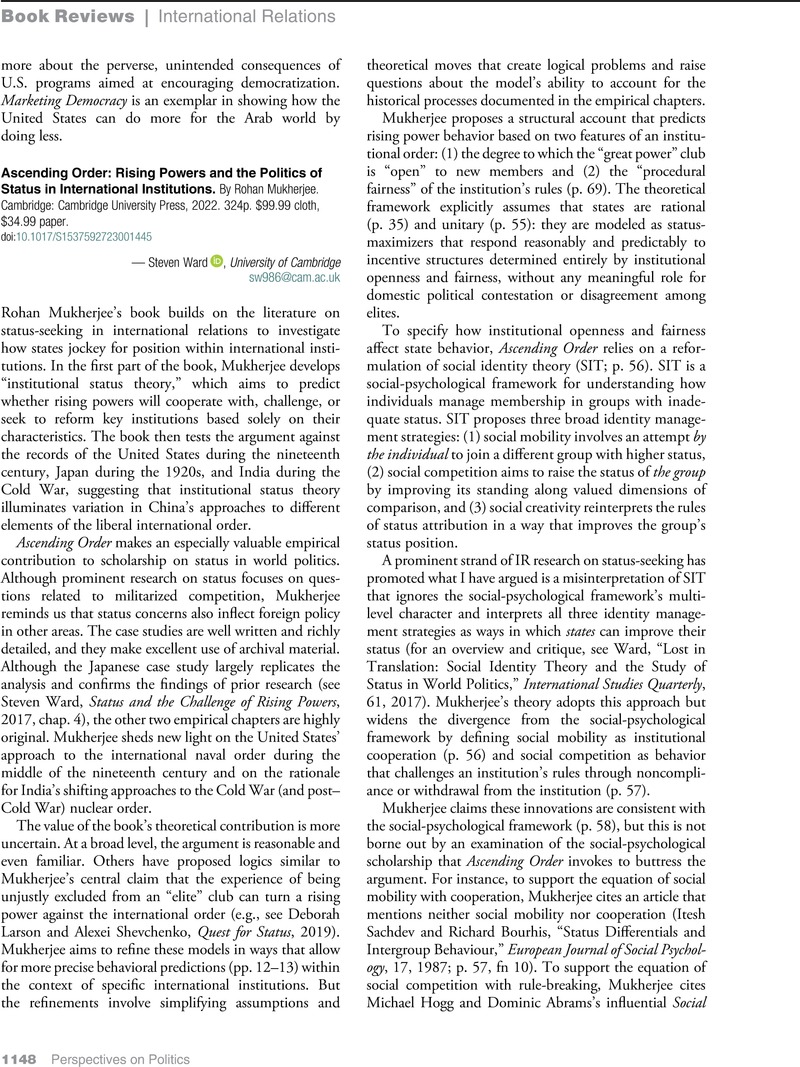No CrossRef data available.
Article contents
Ascending Order: Rising Powers and the Politics of Status in International Institutions. By Rohan Mukherjee. Cambridge: Cambridge University Press, 2022. 324p. $99.99 cloth, $34.99 paper.
Review products
Ascending Order: Rising Powers and the Politics of Status in International Institutions. By Rohan Mukherjee. Cambridge: Cambridge University Press, 2022. 324p. $99.99 cloth, $34.99 paper.
Published online by Cambridge University Press: 01 September 2023
Abstract
An abstract is not available for this content so a preview has been provided. Please use the Get access link above for information on how to access this content.

Information
- Type
- Book Reviews: International Relations
- Information
- Copyright
- © The Author(s), 2023. Published by Cambridge University Press on behalf of the American Political Science Association

